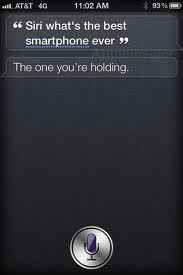One of the aha moments in my classes for entrepreneurs… almost any type of entrepreneur, is when we start discussing the art of selling their product or service. Often we get raging debates soon followed with some super-cool tips on how to immediately impact their sales with little or no cost. Many immediately rewrite and design their marketing strategies based on what they just learned.

And here is what they learned: the difference between selling the features and benefits of your product or service.
Features—a physical or tangible component of your product / service. Using a product example, a bicycle: weighs only 23 pounds, has 21 gears, Shimano brakes, 110PSI high-pressure tires, and is designed light and built for speed.
And for service-based businesses, an example would be a chiropractor’s office: we offer a 10 minute evaluation and assessment of your pain (or situation), then do a series of 3 to 5 treatments over the course of two weeks, followed be an additional assessment, and so on.
Benefits—the non-physical, emotional and intangible reactions to your product / service. In our product example: this super-light, super-fast bicycle with 21 gears will make sure you can get up that insane mountain you have been training for all these months. When you get to the top, you’ll look behind you and know you just conquered that amazing ride you’ve been dreaming about….
In our service example: your initial evaluation with our top chiropractor will immediately ensure you are getting the exact treatment you need for your situation, and as quickly as possible. With this you can relax and let our expert chiropractor do his (her) magic on your body. Watch how quickly your body will respond to his (her) touch and adjustments.
Question: Do you think people buy from features or benefits?
Here is usually when the debate starts in my classes. Some say features, some say benefits and some say both.
In the end, the class all agrees that people buy on benefits. BENEFITS!
Why?
Because features tell and benefits sell.
This is because people want to know how they will benefit from using your product or service. Yeah, sure it is helpful knowing how many gears the bike has, but really getting them to feel the accomplishment of getting to the top of the amazing mountain is what is going to override the features.
If they feel the possibility of owning your product (or hiring you for your service), you will make the sale so much easier to accomplish.
People buy on emotions!
Still not convinced? Look at Apple’s iPhones. For many, many people, if it ain’t an iPhone (or another Apple product) they are not interested. It is NOT because of the features (although this certainly helps) it is because Apple has positioned themselves quite successfully as a hip, cool, state-of-the-art company. And people want a piece of THAT in their lives.
STILL not convinced? Park your rear-end in front of the TV for 30 minutes. Watch two cable stations: Home Shopping Network and QVC. Just watch what these masters of selling do: they can take the ugliest piece of (you know what) and sell millions of them. How they do it is mention (briefly) a feature and then spend 10 minutes talking about all the benefits of it.
Benefits, benefits, benefits!
So if it is in fact benefits that sell your product or service, where are you putting your marketing resources: features or benefits?
If the former, I highly, (I mean highly) recommend you immediately shift your energy into the latter.
And if you do not immediately see results, please e-mail me. I’m not kidding!
Action Steps for the Week
Take a look at your product or service. Make a list of the top 5 features of it.
Next, write as many benefits as you can think of for each of those features. Go nuts with this and then pick the top 10-15 of them (depending on how you will use this information.)
HERE’S THE CATCH: Do this from your customers’ perspective, not yours!
If you are not sure their perspective, find out. There are many ways to get this feedback from them: surveys, calling them, standing on the street corner and asking them, you name it.
Once you are clear on what the benefits are, you are now ready to put your promotional materials together. Briefly mention the feature and then all its benefits. Do this for the top features.
NOTE: avoid grandiose claims like, “The world’s best…” or “You’ll love the taste of…” That stuff does not work. Instead, back it up with statistics, data, survey results, scientific discoveries, etc. Third party endorsements are golden.
Lastly, use testimonials that add credibility to what you promote.
Do these to your marketing and you will most likely be amazed at the quick results you will see.
